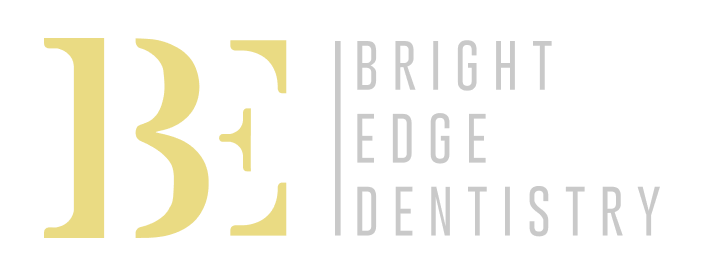
Dental extraction (having a tooth pulled)
In children, baby teeth usually fall out painlessly on their own, however, sometimes they need a little help and the dentist can remove them quickly and painlessly.
In adults, we always do our best to prevent the loss of a permanent tooth. But sometimes, an extraction is the best option to either restore proper function to your bite, or to clear an infection from your mouth.
Reasons the dentist might recommend having a tooth pulled
- Overcrowding. Sometimes there isn’t enough room in the jawbone for the teeth to fit in a way where they function properly. This can make cleaning difficult, leading to gum disease and cavities. Removing one or more teeth might be necessary to restore function to your bite and keep your gums healthy.
- A very large cavity. Cavities can be fixed with fillings or crowns if they’re caught early enough. But if the cavity has gotten so large that it has destroyed most of the tooth, sometimes the only option to rid the infection is to remove the tooth.
- Severe gum infection. Sometimes the tooth itself is OK, but the surrounding gum and bone are infected. A tooth must have healthy gums and bone supporting it, otherwise, it becomes loose and needs to be extracted.
- Broken tooth. For several reasons, a tooth might break off at, or below, the gum line. When this happens, often it’s impossible to restore the tooth with a crown, and the remaining root must be extracted.
What to Expect
Having a tooth extracted is usually a quick appointment. The procedure can be performed using just a local anesthetic. For more complicated extractions, such as impacted wisdom teeth, general anesthesia might be recommended.
The procedure
Once you’re completely numb, the doctor will use an instrument to loosen the ligaments around the tooth. Then, rocking the tooth back and forth, remove it from the socket. Sometimes a tooth will be difficult to remove, so the doctor will section it, and remove it in pieces.
After the procedure
You’ll go home shortly after the extraction procedure and follow the instructions given for home care. Usually, extraction sites heal quickly and are only sore for a few days.
Replacing the missing tooth
Once the extraction site is healed, if you need to replace the missing tooth, you’ll begin the process of either getting an implant, bridge, or partial denture. If you had your wisdom teeth extracted, then no replacements are needed, so you’re done!
Cost of a dental extraction in Toronto
Since each case is unique, the cost of a dental extraction will vary from person to person. If you have dental insurance, then your out-of-pocket cost is usually around $100 to $200+ per tooth. We’ll provide you with a quote before you commit to any treatment. We’ll also submit the information to your dental insurance provider so you’ll know what’s covered.
For patients without dental insurance, the cost will range from $300 to $600+ per tooth. Remember to ask about payment options if you don’t have insurance coverage.
An accurate quote can only come after an exam in person. There’s no way to give a correct estimate by just taking information over the phone. Your treatment plan is unique to you and your specific needs.
There are two general types of extractions and each category has different criteria and costs associated. They are:
A simple extraction
A simple extraction is when a tooth that’s visible in the mouth is pulled. A general dentist can perform this using local anesthesia. A simple extraction of an accessible tooth without complication will typically have a lower cost associated.
A surgical extraction
A surgical extraction is more complex. This involves removing a tooth that’s not visible and can’t be reached easily because either it hasn’t erupted or it’s broken off at the gum line. A surgical extraction usually requires a specialist such as an oral surgeon and will cost more.
Contact us today
to schedule an initial consultation & exam.
Your consultation will include an examination of everything from your teeth, gums and soft tissues to the shape and condition of your bite. Generally, we want to see how your whole mouth looks and functions. Before we plan your treatment we want to know everything about the health and aesthetic of your smile, and, most importantly, what you want to achieve so we can help you get there.
Frequently Asked Questions
There are many reasons to consider the removal of wisdom teeth. Many times, there is not enough room in the mouth for these teeth to fully erupt. This can cause difficulty with oral hygiene, leaving these teeth at an increased risk for cavities, infection, periodontal problems that may affect neighbouring teeth and pain. With a radiograph and examination, we will be able to have a full discussion and decide together what is best for you.
Dentistry is more compassionate than ever before and your comfort is important to us. We use tools and techniques that effectively remove as much discomfort as possible, help us work quickly, precisely and with as little trauma as possible to promote fast healing. We will provide you with aftercare instructions to keep you comfortable and promote fast healing.
About an hour after your procedure, you may remove the gauze sponges that have been placed in your mouth and have something to eat. Be sure to eat foods that are soft for the first 24 hours. Make sure to avoid hot foods and drinking from straws for several hours.
We will provide you with aftercare instructions specific to your needs at your appointment. Here are some general things you can do after a tooth extraction to minimize the risk of complications and encourage a speedy recovery:
– Avoid spitting, mouth rinsing, blowing your nose, using a straw, and smoking in the first 24 hours after tooth extraction.
– Don’t touch the extraction site with your finger or tongue.
– Avoid hot foods and drinks.
– Don’t take aspirin because it inhibits blood clotting.
– Avoid physical activities and exercise.
Ideally, you should schedule three or four days of rest or light duty after your wisdom teeth come out. Resting will minimize your risk of complications and help you heal. Full recovery takes around 2 weeks but you should feel minimal discomfort during this time.






